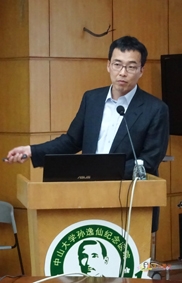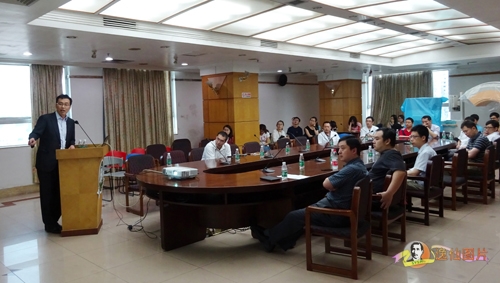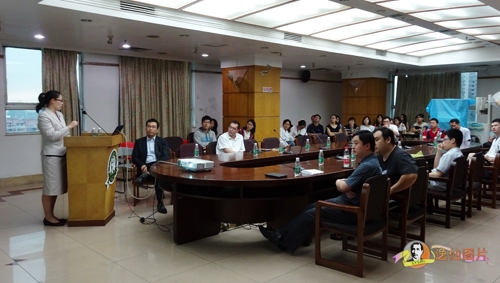Yonsei University Prof. Young-Joon Kim and MGH Dr. Amy Ly Gave Lectures at SYSH
On the afternoon of May 19, 2014, Prof. Young-Joon Kim from Yonsei University and Dr. Amy Ly from Massachusetts General Hospital were invited by Sun Yat-Sen Memorial Hospital (SYSH) to give lectures in the hospital’s academic workshop. Their lectures attracted many doctors and medical students at the hospital. Active discussions were also carried out afterward.


During the lecture, Prof. Young-Joon Kim from the Department of Biochemistry mainly presented his studies on how HBx induces the hypomethylation of distal intragenic CGIs, which are required for active expression of developmental regulators. He also pointed out that genome analysis and the studies on epigenetic regulation would have a important influence on the treatment for liver diseases.


On the other hand, Dr. Amy Ly from the Department of Pathology focused on the pathological development of breast cancer. She introduced the application of fine needle aspiration biopsy in diagnosing breast cancer, and stressed its clinical value compared with other diagnosis methods. She also pointed out the value of gene sequencing and genotyping in the diagnosis of breast cancer.
Prof. Kim is currently professor of the Department of Biochemistry at Yonsei University and Vice president of Korea Genome Organization. As one of the best Korean 20 Biomedical Researchers, Dr. Kim is the recipient of Korean Life Science and Technology Award, and Outstanding Research Award from Korean Science Foundation. He put his research interests on the regulatory mechanism of mouse innate immune system and the epigenetic regulation of immune cells during inflammation.
Dr. Ly joined the staff of the Massachusetts General Hospital in 2012. In addition to practicing general cytopathology, she is a member of the Breast Surgical Pathology Division, and Director of the Fine Needle Aspiration Service. Her research interests include adjuvant therapy-induced changes in breast cancer, the utility of cytologic specimens for molecular studies, and circulating tumor cells in breast cancer patients.


